Strengthening medical command decision making for readiness and resilience
May 23, 2025 - Defence Stories
By: Lt Inna Platonova, Public Affairs Officer, 3rd Canadian Division / Joint Task Force West
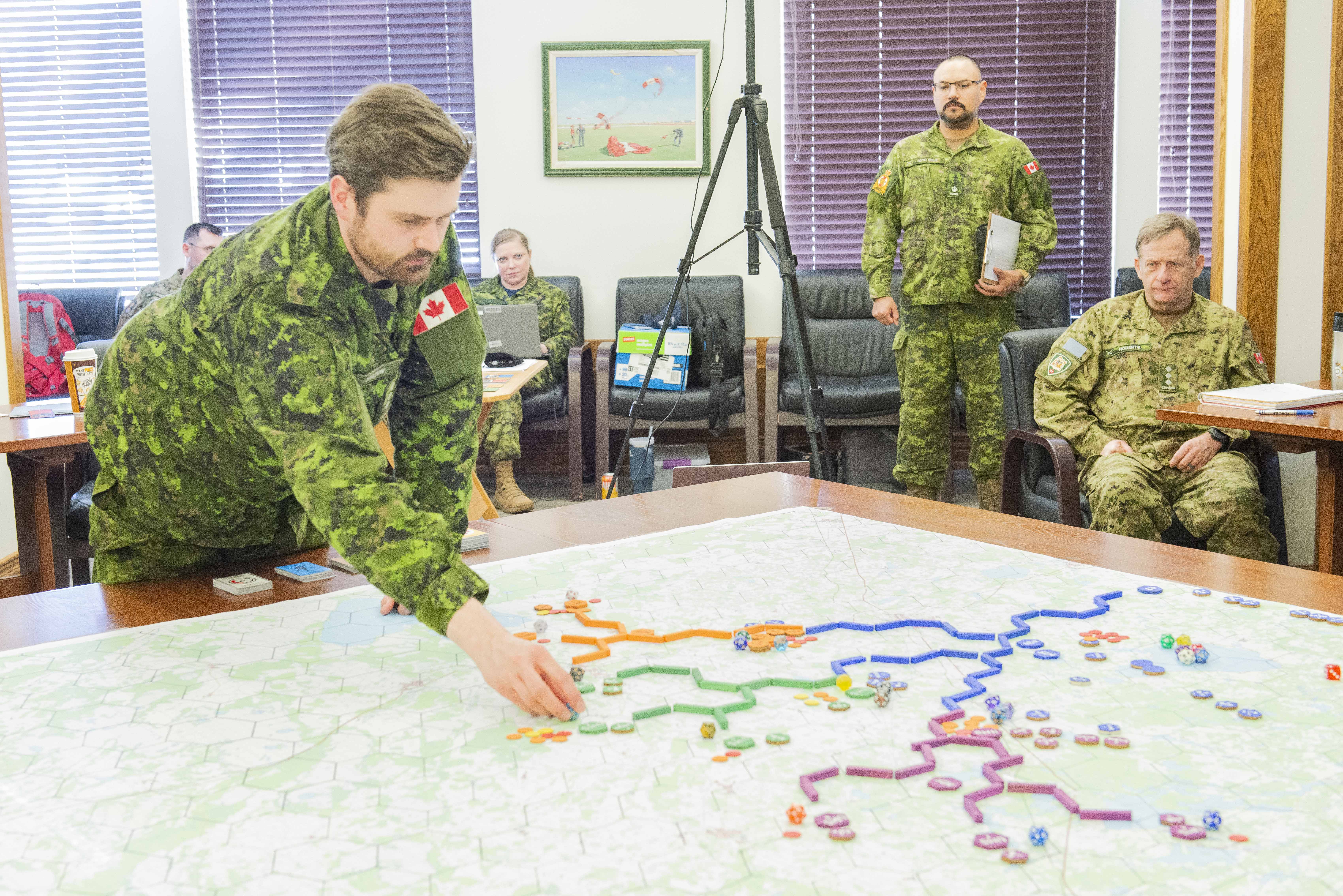
Caption
With members from 4 Health Services Group (4 HSG) members observing, 1 HSG members play out a scenario during Exercise CASUALTY OVERLOAD at the Edmonton Garrison Officers’ Mess on Feb. 27.
The evolving challenges that modern battlefields present are forcing medical leaders and military commanders to rethink combat medical support strategies and redefine acceptable medical risks where achieving the "golden hour" is often not feasible.
Augmented by the latest scientific research and lessons learned from recent conflicts, 1 Health Services Group (1 HSG) Headquarters designed the first‑of‑its‑kind wargame for leaders in military health services, as part of Exercise CASUALTY OVERLOAD for Medical Command Decision-Making in Large Scale Combat Operations (LSCO).
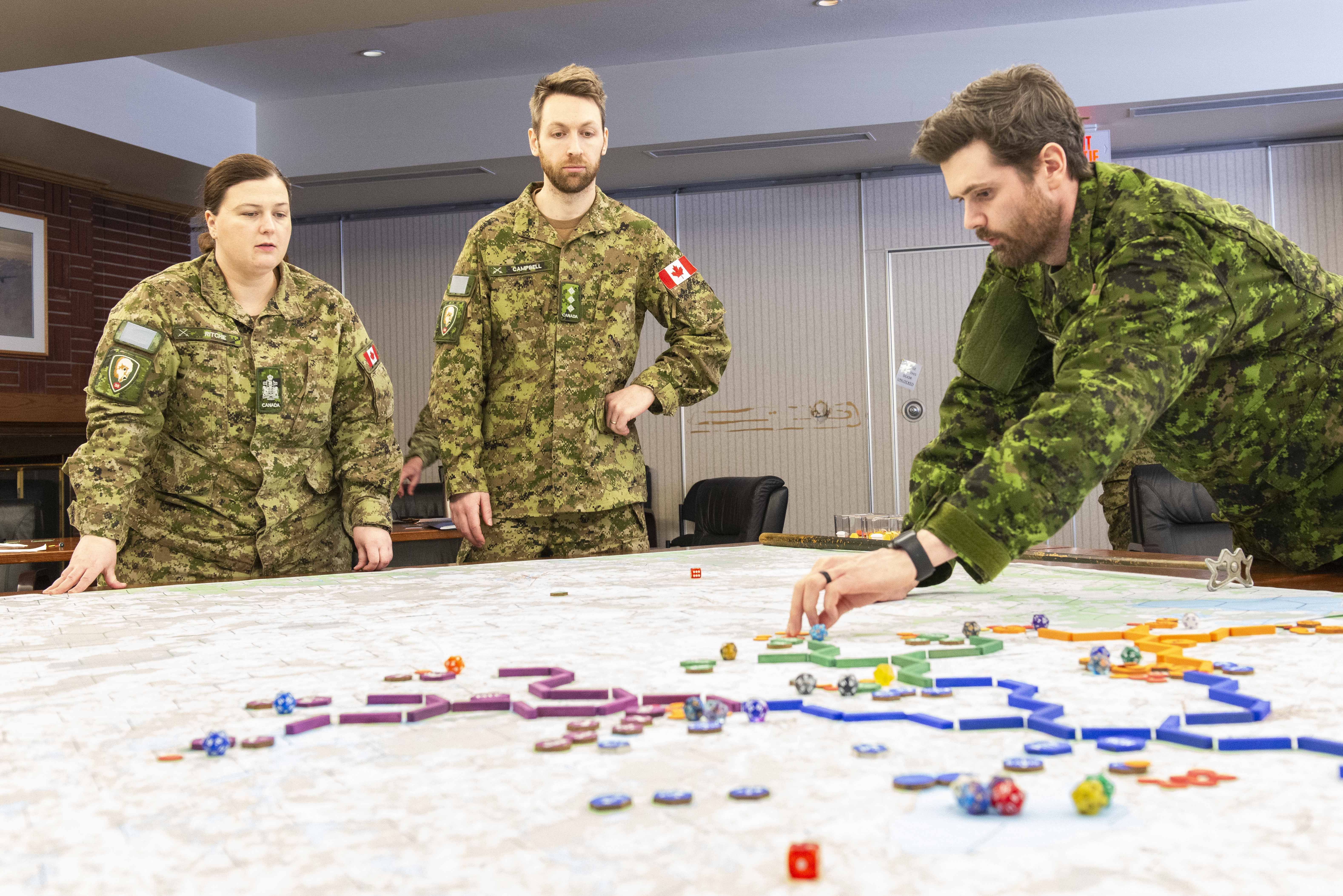
Caption
Members from 1 Health Services Group (1 HSG) participate in the tabletop wargame Exercise CASUALTY OVERLOAD on Feb. 27 at the Edmonton Garrison Officers’ Mess. The exercise was designed by 1 HSG Headquarters to challenge medical command teams’ abilities to manage casualty care in Large Scale Combat Operations.
Ex CASUALTY OVERLOAD was held at the Edmonton Garrison from February 26 to 28, 2025. It brought together health services command teams from across all Western and Northern Canada, from Thunder Bay, Ont., to Victoria, B.C. Members from Eastern Canada’s 4 HSG were also present to observe the tabletop exercise and bring the lessons learned back to their command.
Addressing the participants, Captain (Navy) Nicholas Gauthier, 1 HSG Formation Commander, a driving force behind the exercise, stressed the importance of the event.
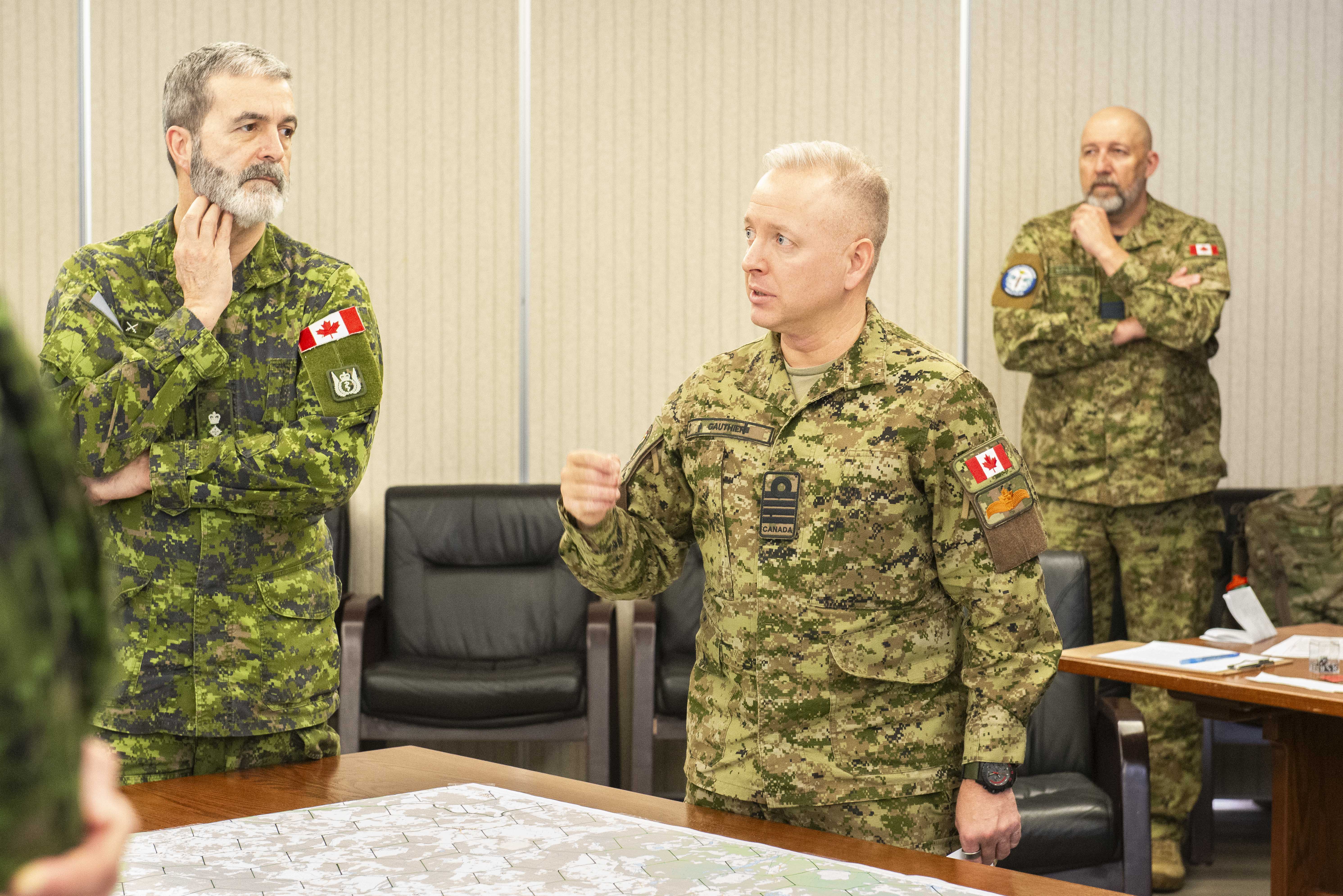
Caption
Captain(N) Nicholas Gauthier, Commander 1 Health Services Group (centre), addresses participants during Exercise CASUALTY OVERLOAD at the Edmonton Garrison Officers’ Mess on Feb. 27.
“There is no greater boost to a soldier's courage than knowing, should they be injured, they will be cared for,” he said. “Our medical preparedness provides that reassurance, empowering our troops to fight with confidence. 1 Health Services Group stands ready, alongside the combat formations’ chain of command, to ensure every soldier is supported, no matter the challenge."
For the first time, a wargame format was applied to simulate medical command decision-making in LSCO conditions and help understand how decisions at the unit and medical brigade level can affect casualty outcomes, including mortality rates, return to combat and overall medical survivability. Integrating lessons learned from recent conflicts, particularly Russia’s ongoing full‑scale invasion of Ukraine, the exercise highlighted current tactical and medical challenges. The Canadian Army has contributed to this discussion, with Colonel Michael Reekie, 3rd Canadian Division’s Chief of Staff, sharing the most current experiences and ongoing efforts to address the evolving needs on the battlefield. The exercise also explored the moral and ethical decision-making processes that affect medical command in high stakes combat situations.
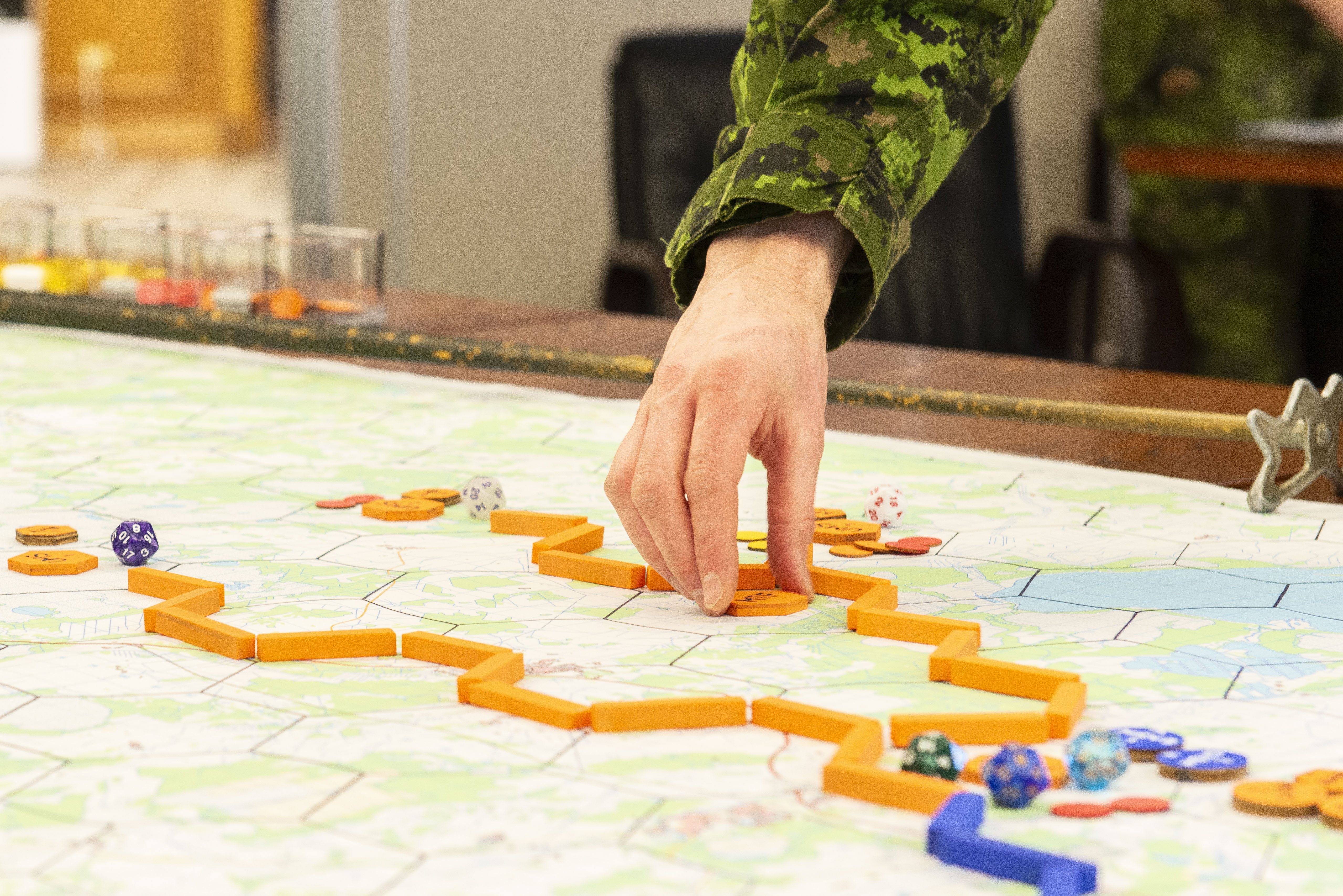
Caption
Exercise CASUALTY OVERLOAD took place at the Edmonton Garrison Officers’ Mess on Feb. 27. The tabletop wargame exercise aimed to simulate medical command decision‑making in Large Scale Combat Operations and help understand how decisions at the unit and medical brigade level can affect casualty outcomes.
Chief Warrant Officer Suzanne McAdam, 1 HSG Formation CWO, applauded the work and emphasized that the exercise is aimed at fostering resilience and readiness among health services command teams, and helps “modernize how we think.”
To further advance medical decision-making, the wargame will be shared with the Canadian Joint Warfare Centre and exported to other units for their further elaboration and use. The game can also be digitized and adapted as a learning tool for junior health services officers.
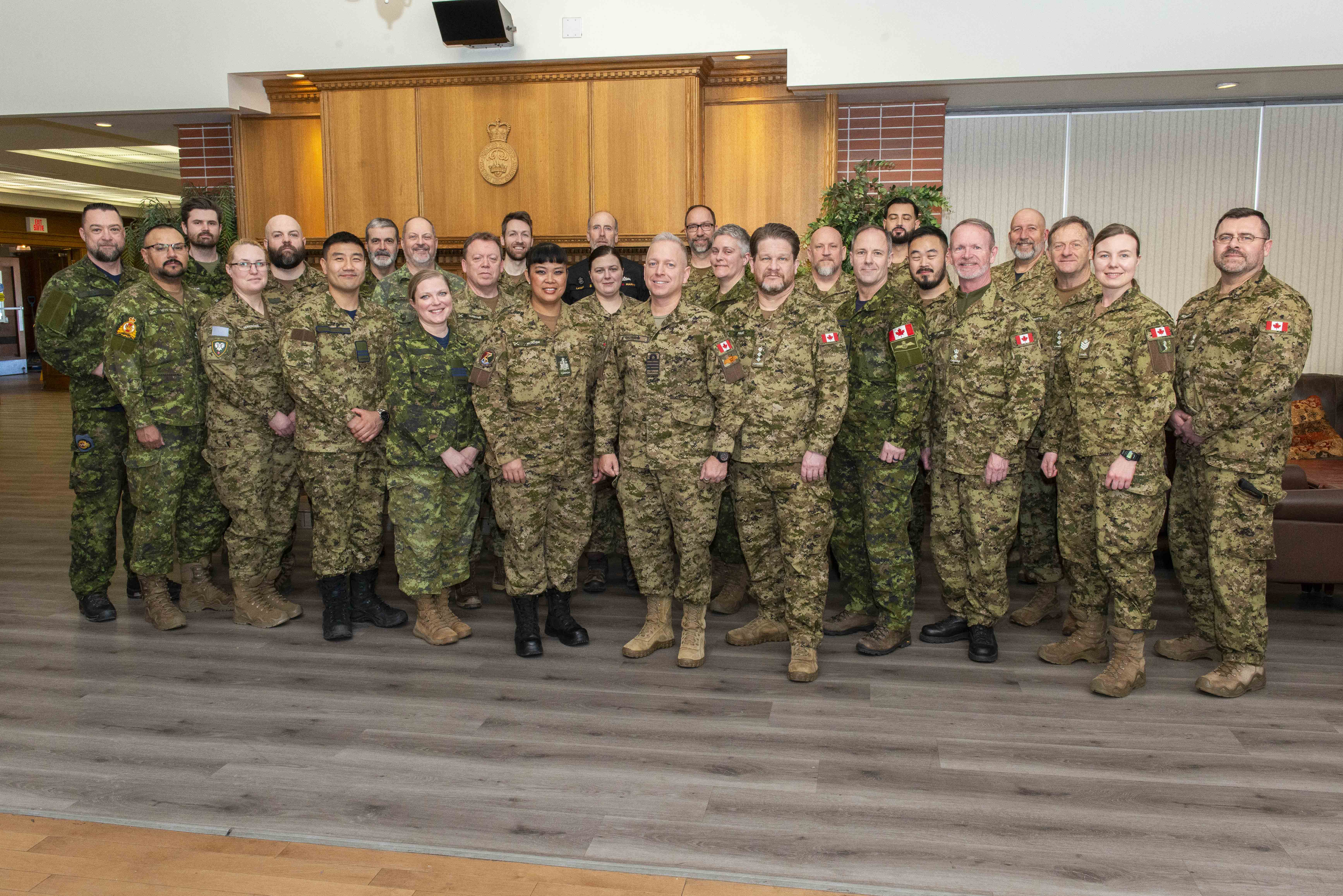
Caption
Participants in the tabletop wargame Exercise CASUALTY OVERLOAD. The exercise took place at the Edmonton Garrison Officers’ Mess on Feb. 27.
Capt(N) Gauthier is confident the wargame will be a valuable tool.
“The exercise will provide valuable insights that can be used by medical command teams to refine tactical and medical response strategies for future operations.”
Photos by MCpl Robert Mitchell, Imagery Technician, 3rd Canadian Division / Joint Task Force West.
See the original article: Strengthening medical command decision making for readiness and resilience – Western Sentinel, March 24, 2025